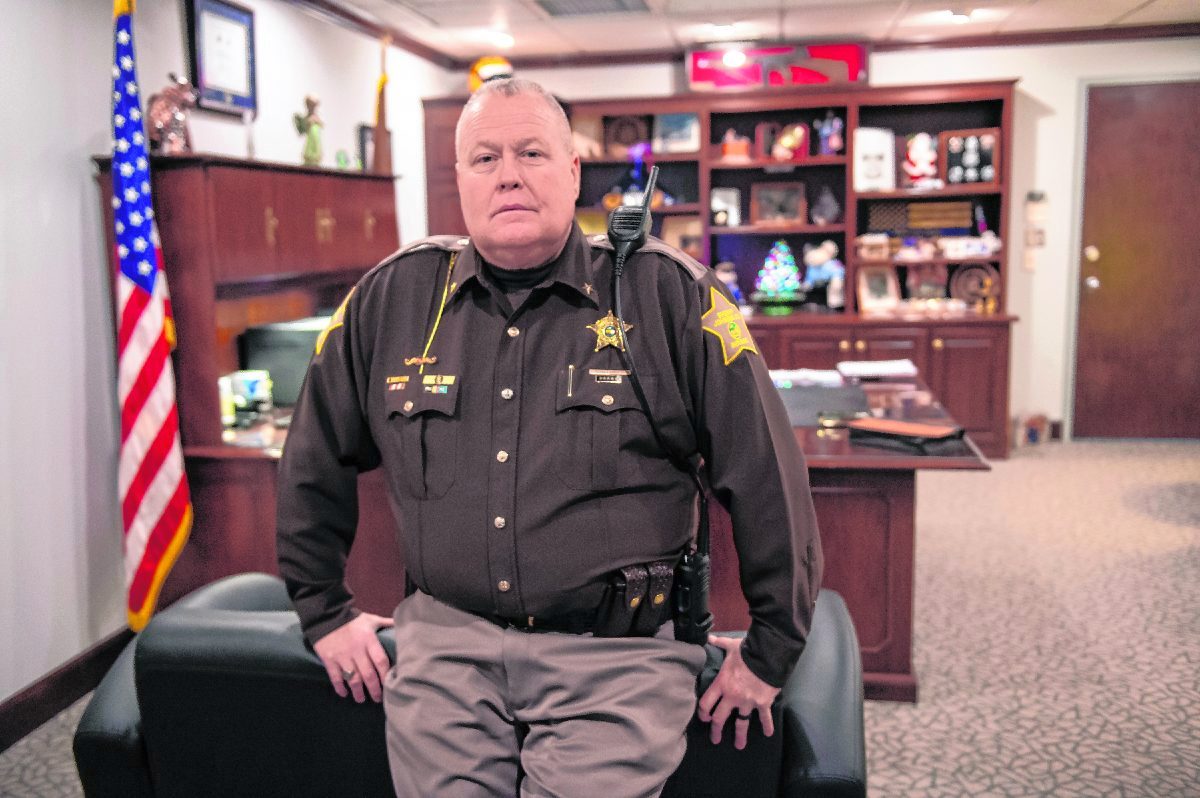<p>At the Johnson County Jail, things are quieter.</p><p>With COVID-19, a potentially deadly disease, sweeping the country—and county—inmates nearing the end of their sentences may be transferred to house arrest or released early for good behavior. At the same time, people arrested on non-violent misdemeanor charges may be given a summons to appear in court at a later date rather than being taken to the jail. </p><p>These steps are to prevent a virus outbreak at the county jail, which is notoriously overcrowded.</p><p>The measures, along with a decrease in the number of inmates being transferred to the county from other jails due to virtual hearings, have led to a significant decrease in the jail population. On March 3, before the first confirmed case of coronavirus in Indiana, there were 374 inmates at the jail. A month later, on April 3, there were 281 inmates, said Duane Burgess, Johnson County sheriff. </p>[sc:text-divider text-divider-title="Story continues below gallery" ]<p>“(The jail population) has decreased considerably, both due to cite and release, people being released whose sentences are almost complete and pre-trial detainees,” Burgess said.</p><p>Employees and inmates are screened, he said. </p><p>“If we cannot stop someone from coming to jail because their crime is so horrendous, we’re questioning those folks, starting at the beginning to make sure people aren’t coming into the facility (who are sick),” Burgess said. “Have we had people who could’ve been around someone with COVID-19? I could’ve been around someone who had it in the grocery store. We still quarantine those individuals to make sure they’re safe.”</p><p>Jails and prisons have become a focal point in concerns about the virus, which has killed more than 200 Hoosiers as of Thursday, including 10 Johnson County residents. The Cook County jail in Chicago is the single most infected hotspot in the country, with more than 400 cases of COVID-19, according to data compiled by the New York Times.</p><p>To avoid booking people into the jail who have committed non-violent misdemeanors, such as driving on a suspended license, sheriff’s deputies have been instructed to practice “cite and release,” meaning offenders are given a summons and asked to appear in court at a later date. Deputies are also issued rubber gloves, goggles and surgical masks to protect themselves during any encounters they have, Burgess said.</p><p>Civil hearings are held via phone or video conferencing, and criminal hearings are held remotely, due to a new Indiana State Supreme Court order, which extends court guidelines to May 4, at the earliest.</p><p>The guidelines for courts, which include the suspension of jury trials in criminal and civil cases until after May 4, are a continuation of the measures put in place by the state’s Supreme Court on March 18, and are an extension of state and federal guidelines for social distancing during the COVID-19 pandemic.</p><p>The Johnson County Prosecutor’s Office, sheriff’s office, corrections and probation are all working together on how to prevent a virus outbreak from occurring, said Joe Villanueva, Johnson County prosecutor.</p><p>“This isn’t opening up the doors and letting all the inmates go free. Our goal is to prevent a microcosm of what’s happening all over the country, the state and the county from happening in the jail,” Villanueva said.</p><p>“We’re looking at candidates who could have a change in circumstances, such as work release. If people are not having problems and have stable housing, some of those people have been temporarily transferred to home detention and have daily reporting. We’re focusing on misdemeanor stuff; non-violent crimes. We’re trying to move the non-violent people out and at the same time trying to reduce the numbers coming in.”</p><p>This doesn’t mean people won’t be held accountable for their actions, Burgess said.</p><p>“It’s a big deal right now with the slow-down,” Burgess said. “These are things we have never ever seen in my 30-year career in law enforcement. When we go back to normal, people will go to court.”</p>





